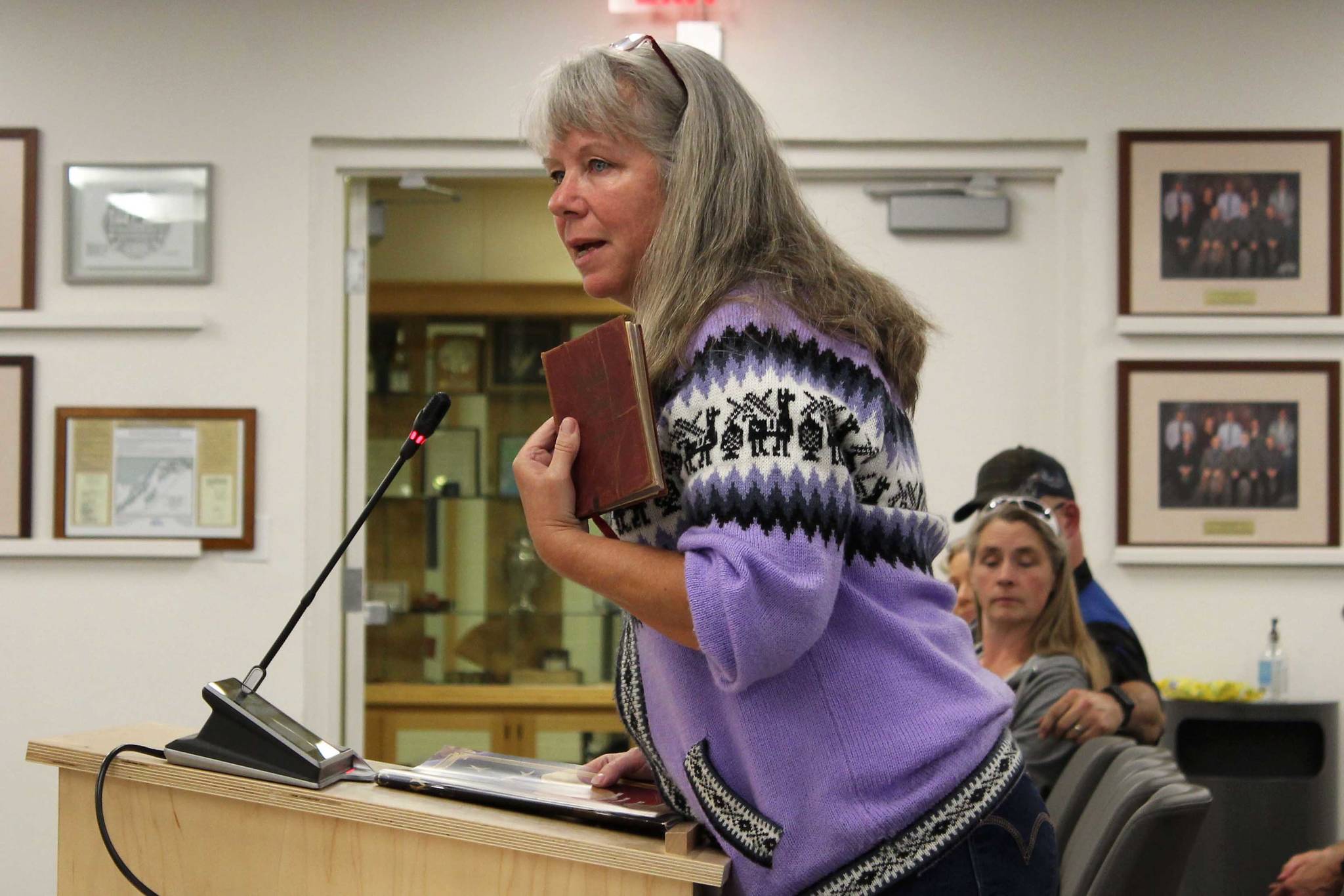Clayton Holland spent his first school board meeting as superintendent assuring a crowded room that critical race theory is not being taught in Kenai Peninsula Borough School District schools.
“[Critical race theory], or its tenets, are not part of the KPBSD curriculum or what we do,” Holland said during Monday’s meeting of the KPBSD Board of Education, which was held in the Betty J. Glick Assembly Chambers in Soldotna.
On the board’s agenda were policies related to the district’s Title IX protocols aimed at bringing the district into compliance with federal guidelines announced last year. However, those policies were pulled from the agenda so that the board could review them further.
After clarifying that critical race theory is not a part of district curriculum, Holland explained what the district teaches and will continue to teach students as it relates to history.
“Teaching the facts of history, current events and critical thinking, is what we do and will continue to do,” Holland said. “Our teachers are going to teach history. I want to be real clear on that. We’re teaching history. They’re going to teach facts to our students.”
Multiple individuals affiliated with KPBSD have said that critical race theory is not part of KPBSD curriculum. However, the concept was a recurring theme in Monday testimony.
Those community members said specifically that if critical race theory is taught in schools, the district would be moving backward and that students would become indoctrinated.
Critical race theory is an academic concept developed in the 1970s that looks at racism not just as a product of individual bias but as a social construct reinforced through policies and institutions, according to Education Week. The theory has recently been brought to the forefront of national discussions about race spurred by the rise of racial justice movements such as Black Lives Matter.
“They are indoctrinating our kids with lies,” said Susan Lockwood. “If they don’t like the United States of America, they should just leave and go to China, Russia or Iran or some other communist country.”
“Critical race theory] brings us back into our horrendous past,” said April Orth.
Dave Peck, of Kenai, asked the board to consider a formal commitment stating they will not “endorse or allow as part of our curriculum” critical race theory.
Kenai Peninsula Education Association President Nathan Erfurth, who used to teach government and history at Soldotna High School and helped craft KPBSD’s social studies curriculum, said Monday that district students are taught what happened and who was involved, and are encouraged to come to their own conclusions.
“Through inquiry, research, projects and activities that parents are encouraged to assist their students with, they are guided to expand their perspectives and build their critical thinking skills so that they are able to draw their own conclusions about what has happened in our past and what it means for our present,” Erfurth said.
KPBSD Board of Education President Zen Kelly reiterated previous statements that critical race theory is not an issue in KPBSD and said his daughters graduated from KPBSD schools with skills akin to those described by Erfurth.
“Critical race theory gets a lot of time on social media, gets a lot of time in certain news circles and it gets a lot of people very, very worked up,” Kelly said, adding that critical race theory “really isn’t a problem in our school district.”
Though discussions about critical race theory dominated debate at the board’s Monday meeting, Title IX was not totally absent. Inside the assembly chambers, the sound of a protestor yelling into a megaphone could be heard throughout the meeting.
Danielle Fidai and Ethan Hansen were outside of the borough building protesting the Title IX policy revisions. Specifically, Fidai and Hansen said they are concerned the policy will infringe on the free speech rights of students, especially those that relate to verbal discrimination and harassment, as well as how the policy revisions would define the rights of transgender students.
“They [say] ‘We’re just trying to stop bullying, we care about their feelings,’ but that’s a smokescreen to say, ‘Well, now you have to shower with the opposite sex now, you can’t even look at someone wrong, [and] you can’t say anything wrong that might hurt their feelings,” Hansen said. “My rights don’t end where your feelings begin.”
Monday’s full Board of Education meeting can be viewed on the district’s media page at media.kpbsd.k12.ak.us.
Reach reporter Ashlyn O’Hara at ashlyn.ohara@peninsulaclarion.com.


